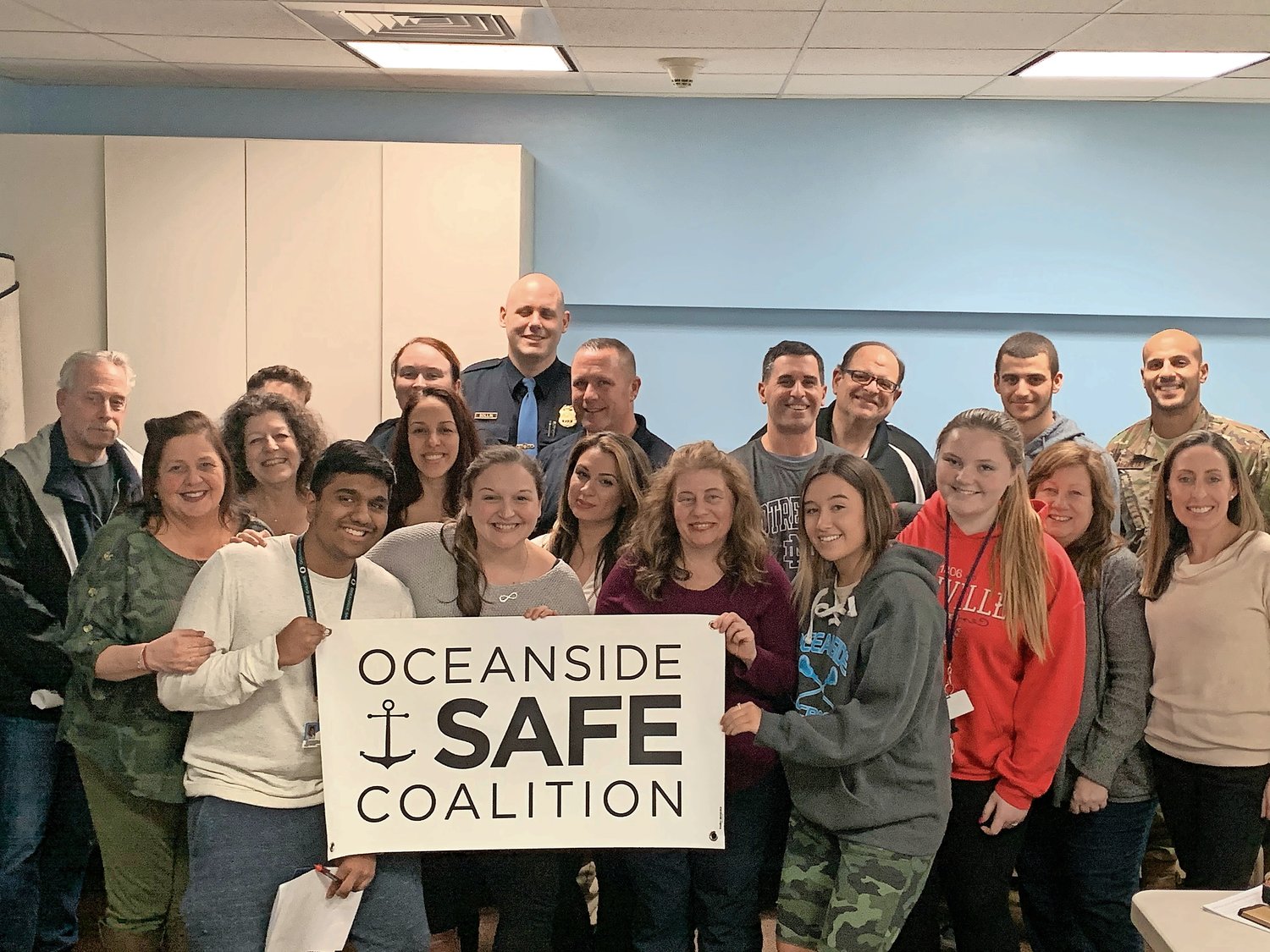Preventing substance abuse in Oceanside
In the years after Alison Eriksen graduated Oceanside High School in 2004, several of her former classmates struggled with drug addiction and mental health issues. Some of them died of overdoses or suicide.
Eriksen and her friends could not sit idly by as an opioid epidemic and mental health crisis took the lives of people they grew up with, she said. So they organized and, in 2015, created the Makeshift Movement, a group dedicated to ending the stigma of addiction and mental illness.
“We couldn’t sit and watch it happen anymore,” Eriksen said. “Mental health and substance use is an issue, it’s happening in Oceanside and [we thought], ‘How many people have to lose their lives to realize something has to be done?’”
Around the same time, State Sen. Todd Kaminsky convened a group of community members at the Oceanside Library to address the same issue. He suggested Oceansiders build a drug and alcohol coalition to further tackle the problem.
Sara Dowler, a health teacher at the high school, attended that meeting and then helped start the Oceanside SAFE Coalition in 2015. SAFE stands for “substance abuse free environment.”
“It opened my eyes to a lot of things,” Dowler said. “As a health teacher, I saw that what we’re teaching in the class doesn’t matter as much as what we do to change the community.”
Dowler, the coalition chair, brought on Eriksen to be the group’s project and grant coordinator. “She is a part of this community, and it is so important to have someone who has connections to people,” she said. “I didn’t leave her alone until she said ‘yes.’”
The SAFE Coalition also formed a partnership with Long Beach Aware, another drug and alcohol prevention coalition. Long Beach Aware became the coalition’s fiscal agent so it could apply for grant funding.
Now, about four years later, Long Beach Aware has received roughly $125,000 per year, for up to five years, in federal funding for Oceanside SAFE’s mission to “prevent and reduce alcohol and drug use among youth by engaging in environmental strategies, programs and activities that create a safe, healthy and drug-free Oceanside community,” Eriksen said. “It allows us to put into place different strategies aimed to change the climate and culture surrounding substance abuse and underage drinking.”
The grant was awarded in part because survey results of Oceanside youth show that there is a need for educating them about the dangers of substance use. The coalition is not yet releasing those results.
With the grant, Eriksen and one other coalition member will attend trainings in March, May and August in Arlington, Va., that will give them tools to implement within Oceanside to create a drug-free environment. This will enable the coalition to host programs, activities and initiatives that target these issues strategically.
In the past, group members have held community events and public information sessions on the topics of mental health and addiction. The grant will help them expand upon those efforts.
The coalition meets the third Thursday of each month at the Oceanside Library, and members from 12 sectors of the community attend. That includes student representatives from the youth club at the high school. The students are now hosting a PSA making competition under the theme of abstaining from marijuana use. The PSAs will relay the message that “not everyone does it,” Dowler said, noting that youth may pick up drugs or alcohol because they’re under the impression that most of their peers are engaging those activities.
“Research shows that the younger you are when you first start with drugs or alcohol, the more likely you are to have an addiction as an adult,” Dowler said. “So our target is youth.”
For more information, visit “Oceanside SAFE” on Facebook and Twitter.






